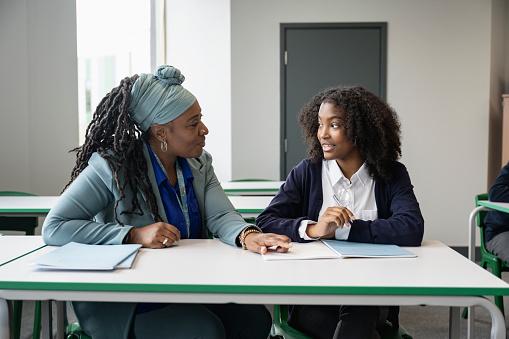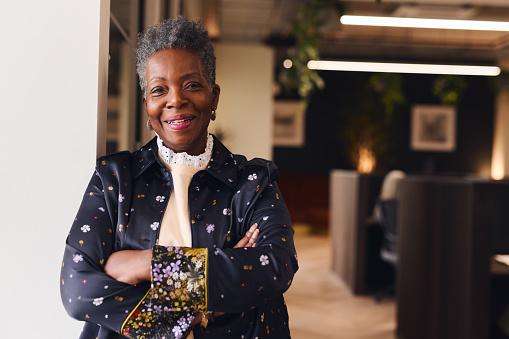12 Simple But Effective People-Facing Skills That Can Improve Your Professional Life

Everybody talks about some of the most sought-after skills, but nobody puts into focus the importance of having People-Facing skills. Completely ignored, yet one of the most important bedrock skills for individuals who seek to wield success in their life and business.
As a black woman, navigating through various social and professional settings can often come with its own unique set of challenges. However, having strong people skills can greatly enhance your ability to succeed in these environments.
To be successful in life, especially if you wish to be a leader, an entrepreneur, or work in a business where people are your most important asset. Then people facing skills would come in handy in shaping the face of your success.
In this blog post, we will explore some effective people skills that are particularly useful for black women. From learning how to assert yourself in a professional setting to building a supportive community, these skills can help you overcome obstacles and reach your full potential, empower you to build stronger relationships, communicate effectively, and achieve your goals.
Whether you’re a student, a professional, or an entrepreneur, people-facing skills have a role to play in your attainable success this year.

What Are People-facing Skills?
Simply put, People facing skills are the skills that people need to survive in the world.
They provide a foundation for other higher levels of skills and abilities. These skills are functional literacy or fundamental skills that help build people in their professional and personal life. It’s also been referred to as the abilities and traits that allow individuals to interact effectively with others.
They include a wide range of abilities such as communication, empathy, active listening, problem-solving, conflict resolution, negotiation, and leadership. These skills are essential for building and maintaining relationships, resolving conflicts, and achieving success in both personal and professional circles. They are also crucial for creating positive and productive work environments, leading teams and projects, and achieving goals in a collaborative setting.
Whether you’re a student, a professional, or an entrepreneur, developing your people skills can greatly improve your life. In this blog post, we will explore 12 simple yet effective people-facing skills that can help you build stronger relationships, communicate effectively, and achieve your goals. From active listening and empathy to conflict resolution and leadership, these skills are essential for anyone looking to improve their lives and succeed in the modern world.
12 People-Facing Skills To Help You Thrive In Your Professional Space
1. Communication
The ability to communicate effectively and efficiently is important for every job. You will need to be able to discuss issues with clients, colleagues, and subordinates. Communication is a key part of managing people, so you will need to learn how to get your point across without making the other person feel like they are being talked down to or criticized.
You might think that the best way to learn how to communicate effectively is by reading books and watching videos about communication. But that’s not going to help you much if you don’t put any of it into practice. The problem with most books and videos is that they focus on the technical aspects of communicating, like how to write emails or make presentations, when what counts is the interpersonal skills that go along with these things.

2. Time Management
In most jobs, and social interactions, time management is a crucial skill because you often have limited resources and must prioritize your tasks to complete them as quickly as possible while still providing quality service to individuals. You can use this skill when scheduling meetings and appointments with people as well as determining what tasks should be done first to get things done quickly and efficiently.
3. Decision-Making Skills
Decision-making is an essential skill for any small business owner or workplace professional because even if you don’t know whether something will work out or not, you need to make decisions anyway! This skill is a must-have essential for anyone hoping to face people in the professional space.
4. Problem-solving skills
Problem-solving skills are important in the workplace and personal life as they allow individuals to identify and address issues, make decisions, and find creative solutions to challenges. These skills are valuable in both individual and team settings, as they enable people to work effectively and efficiently to accomplish their goals.
In the workplace, problem-solving skills can lead to improved productivity, better decision-making, and increased job satisfaction. In their personal life, problem-solving skills can help individuals navigate challenges and achieve their goals. Being able to effectively solve problems can also increase one’s sense of self-efficacy and can foster resilience in the face of future challenges.
5. Empathy
Empathy is the ability to understand and share the feelings of others. It is a vital people-facing skill because it allows individuals to connect with others on a deeper level and to better understand their perspectives and needs.
Empathy is essential for effective communication and can help to build trust and rapport with others. It also allows individuals to provide more effective support and resolve conflicts more effectively. Additionally, empathy can help to foster a more positive and inclusive work environment.

6. Conflict Resolution
Simply put, this means Learning how to handle and constructively resolve conflicts. Conflict resolution is a vital people-facing skill because it enables individuals to effectively manage and resolve conflicts that may arise in their personal and professional lives.
In the workplace, conflict resolution skills can lead to improved communication, increased teamwork and collaboration, and the ability to resolve disputes in a timely and efficient manner. This in turn can result in a more positive work environment and increased productivity. In personal relationships, conflict resolution skills can help individuals navigate disagreements and maintain healthy relationships.
The ability to resolve conflicts constructively can also help individuals develop stronger communication and negotiation skills, which can be beneficial in many areas of life. Overall, conflict resolution skills are an essential tool for promoting healthy relationships, effective communication, and positive outcomes in personal and professional settings.
7. Teamwork
Teamwork is a critical people-facing skill in the workplace, as it involves the ability to collaborate and communicate effectively with others. It involves being able to work well in a group, build and maintain relationships, and understand and appreciate the perspectives and strengths of others.
Individuals need to be able to work together to achieve a common goal and to be able to resolve conflicts and differences of opinion constructively. Strong teamwork skills are highly valued by employers and can lead to greater success in the workplace.

8. Negotiation
Negotiation is a key people-facing skill that involves the ability to effectively communicate and reach agreements with others. It requires the ability to understand the perspectives and needs of others, as well as the ability to articulate one’s point of view.
Effective negotiation skills involve the ability to listen actively, identify common ground, and find creative solutions that meet the needs of all parties involved. It also involves the ability to manage emotions and maintain a calm, professional demeanor.
Negotiations can happen in various settings such as business, legal, labor, and diplomacy. Strong negotiation skills are highly valued by employers and are essential for success in many professional fields.
9. Leadership
Leadership is a key skill when it comes to effectively managing and leading a team of people. Effective leaders possess a variety of characteristics and abilities, including the ability to communicate effectively, inspire and motivate others, make difficult decisions, and lead by example.
They also can build trust and create a positive work environment, while also being able to delegate tasks and hold team members accountable for their actions. Additionally, they can build a shared vision, create a strategy, and align their team to achieve the organization’s goals. In summary, effective leadership is a combination of various skills that help leaders to inspire, guide and direct their team to achieve the desired outcome.

10. Adaptability
Adaptability is an important people-facing skill as it allows individuals to effectively navigate and respond to changes in their environment and the needs of those around them. This skill includes being able to adjust to new situations, being open to new ideas and perspectives, and being willing to change one’s approach when necessary.
Adaptable individuals can handle uncertainty and ambiguity and can pivot quickly when plans change. In a work setting, this means being able to respond to shifting priorities, changes in team dynamics, or unexpected challenges. In a customer-facing role, it means being able to adjust to the needs and expectations of different customers.
Adaptability also involves being a good listener, being able to take feedback and adjust one’s approach, and being able to build relationships with a diverse group of people. Adaptable people-facing professionals can also better understand and anticipate the needs of their colleagues, customers, or clients, and respond accordingly.
11. Positive Attitude
A positive attitude is a crucial people-facing skill as it can have a significant impact on how individuals interact with and are perceived by others. A positive attitude can create a more pleasant and productive work environment, foster better relationships, and lead to increased job satisfaction and success.
Individuals with a positive attitude tend to approach challenges with a sense of optimism and confidence and are more likely to find solutions to problems. They tend to be more resilient when faced with difficult situations and are more likely to bounce back from setbacks. They also tend to be more empathetic, understanding, and supportive of their colleagues.
A positive attitude can be especially important as it can influence how customers perceive the service they receive. Positive interactions can lead to increased customer satisfaction and loyalty, which can benefit the organization in the long run. In summary, a positive attitude is a valuable people-facing skill as it can create a more pleasant and productive work environment, foster better relationships, and lead to increased job satisfaction and success. It involves approaching challenges with a sense of optimism and confidence and being resilient, empathetic, understanding, and supportive. It can also have a significant impact on how individuals are perceived by others.
12. Listen Attentively
Listening attentively means paying attention not just to what someone has said but also to how they said it (their tone of voice, body language, etc.). It also means being open to new ideas and perspectives without judging them first. A good listener will ask questions and encourage others to express their thoughts and feelings while remaining open-minded about what they have said so far. Paying close attention to what others are saying and showing that you understand through verbal and nonverbal cues is a good way to develop a people-facing skill.

How to Know if You’re a Sociable Person
- You are not a one-sided person but show interest in others.
- You express your feelings.
- You ask questions and seek clarification.
- You admit when you are wrong.
- You apologize if you have done something wrong.
- You express gratitude to others in words or deeds.
- You are honest with yourself and others.
- You don’t blame others for your mistakes or misfortunes.
- You forgive others.
- You are assertive without being aggressive.
- You ask open-ended questions.
- You are positive about other people’s accomplishments.
- You use active listening techniques when speaking with others.
- You value diversity within your team or organization (for example, women and men).
- You take responsibility for your actions and choices.
- You understand diplomacy.
All images are sourced at unsplash.com
The one who spells Afrolady from the larynx of her pen. She’s a high spirited, cultured and ingenuous African child, whose writing drops an unimaginative creative splash on history and carves the indignation and memories of Black women.

